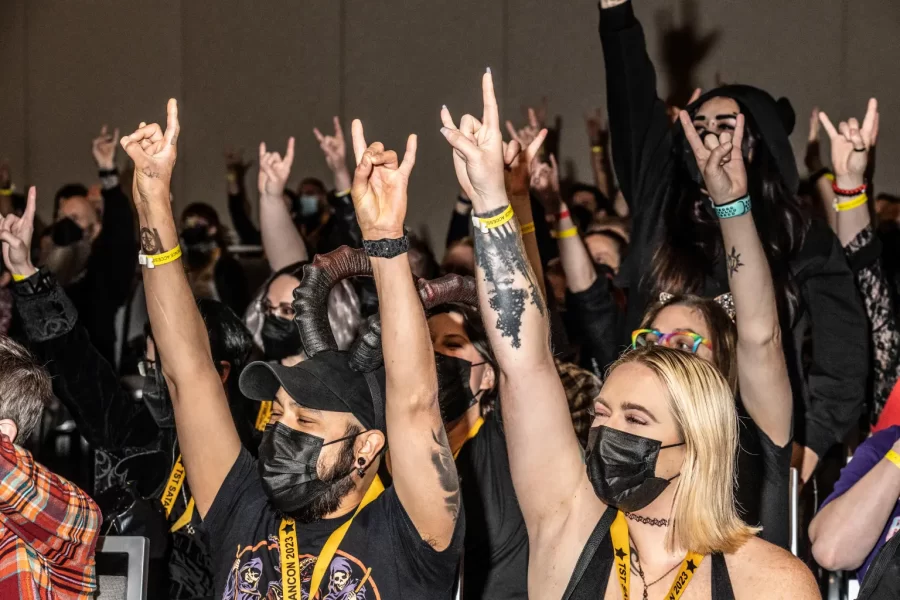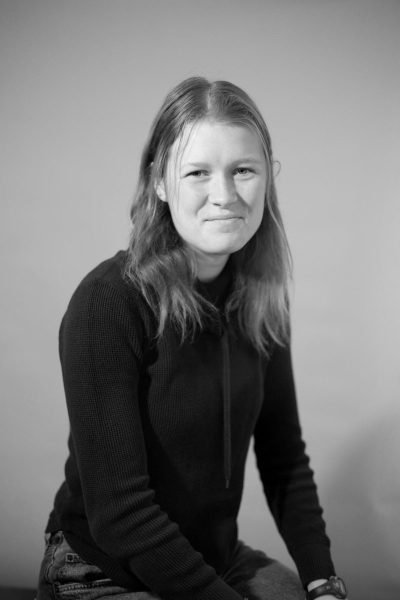The Satanic Temple’s Boston SatanCon is an Event to Remember
Boston’s SatanCon took place on April 30th.
July 20, 2023
From April 28th to April 30th, people gathered in Boston for the second annual SatanCon. The number of attendees, 800, more than doubled from last year’s 300. Run by The Satanic Temple, the three-day long event—held at the Marriott Copley Place—included rituals, entertainment, discussion panels, and a marketplace. The event even had a theme called “Hexennacht in Boston” which translates from German to “Witches’ night”. It was hosted in Boston as a dedication to Mayor Michelle Wu after she didn’t let The Satanic Temple give a satanic invocation at Boston City Hall.
The group that organized the event, The Satanic Temple, was only formed recently in 2013, but they have already made a mark on the Boston area and larger America. Many of the attendees of the event even remarked on the impact The Satanic Temple had on their lives. An event attendee, Emma Yamma, explained to USA Today, “I’m opinionated. I want things to get done … I wanted a community that I felt like I could belong in. I found it. They’re family to me.”
Unlike other Satanic groups, such as the Church of Satan, members of The Satanic Temple do not actually worship Satan, and instead believe in free-thinking and freedom of religion. They follow their “Seven Fundamental Tenets,” alongside their mission, which states, “Encourage benevolence and empathy, reject tyrannical authority, advocate practical common sense, oppose injustice, and undertake noble pursuits.”
As a group, The Satanic Temple is also heavily involved in politics and advocacy. They’ve fiercely advocated for the abolishment of corporal punishment in public schools, the equal representation of religious symbols, abortion rights, and mental health care. They’ve started projects such as the “Protect Children Project,” which prevents abuse in schools by allowing child members to legally be exempt from certain punishments.
Another SatanCon attendee, Richard-Lael Lillard, remarked to WBZ-TV, “It’s about supporting human rights. It’s about supporting women’s bodily autonomy. It’s about freedom of religion, freedom from religion. Most [members] don’t believe in Satan, not a literal Satan. It’s not some 1980s horror film.”
Despite SatanCon’s best intentions, the event still elicited a defensive response from the Boston community. As a retaliation to the convention, many Christians were worshiping and praying in the streets. There was also a Christian event called ‘Revive Boston!’ held the same weekend.
A participant in Revive Boston!, Tim Nee, gave his opinion on SatanCon to CBS News: “God loves everybody. God loves everybody whether you’re a Satanist or whatever background you might be. Satan is a deceiver. Anything other than Jesus is not the truth. So, I feel bad for these people, they’re deceived like anybody else, but the love of God is extended to them.”
The Satanic Temple, and Satanism in general, is often a group that faces lots of backlash and ostracization. Suzanna Plum, a Satanic Temple member, explained to CBS News, “I understand the confusion, the fear. I really do, but at the same time, we’re a very misunderstood group.”
As the recent SatanCon event and its response depicted, there are a lot of assumptions made about The Satanic Temple based on its name and preconceived notions. However, the group remains hopeful as they stand their ground for what they believe in, whatever it might be.










